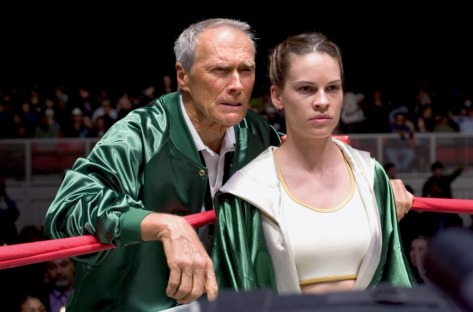
Never wanted to kick a nun in the face? Think again.
Now I am sure there are many decent, loving, and compassionate nuns in the Catholic Church who live by Christ’s example, but they’re nowhere to be found in actor/director Peter Mullan’s unrelentingly bleak drama, The Magdalene Sisters. Three young Irish women are sent to a brutal convent where they are subject to myriad humiliations and made to work night and day in the laundries for no pay.
These are the heroines’ crimes. Margaret (Anne-Marie Duff) got raped. Rose (Dorothy Duffy) got pregnant. Bernadette (Nora-Jane Noone) flirted with some boys over the fence of the orphanage where she has been placed indefinitely. For these ‘crimes’ the trio are considered fallen women, but you’d think fallen women would at least get to have more fun then these girls do. Degraded, bullied, and beaten into submission, the womens’ ultimate crime was being born in the wrong time, at the wrong place, to the wrong people.
That’s right. Heartbreakingly, the girls at the convents’ have been shamed by their families and pretty much given off to a life of virtual slavery. When one girl, Una (Mary Murray,) makes a successful escape attempt from the convent, her dad (writer/director Mullan) drags her back, beating her hysterically all the while, and shrieks “You’ve got no home. You got no mother. You got no father. You killed us, you slut. you killed us both.” Remember in One Flew Over the Cuckoo’s Nest when Billy Bibbit, played by Brad Dourif, kills himself because he is so shamed by the idea of his mama finding out he ain’t a virgin no more? This is that reality.

I think this is why Kevin (Sean McDonagh,) Margaret’s first cousin and rapist, just stands impassively as Margaret tells her family what he did to her. This is the really disgusting thing. He knows he can get away with it. He knows that among many people in his society (1963 Catholic Ireland) that the men aren’t considered culpable for anything they do. While boys are casually told to keep it in their pants, women suffer the real brunt of it. And that’s not the most reprehensible thing on display in this movie.
The Magdalene Sisters would seem totally out there if it weren’t reportedly based on a true story. How accurately based, I don’t know, and it’s easy to see why the Catholic church went nuts when this came out. What’s really interesting, though, is not the claimed attack on Christianity (which is a dime a dozen in movies and TV) but the performances (outstanding across the board) and the dynamics between the characters. Sister Bridget (Geraldine McEwan) is one of the most bone-chillingly evil villainesses in film history.
And there’s nothing worse than an evil person thoroughly convinced by their own moral superiority, who believes without a shadow of a doubt that they are going straight to heaven. Mostly Sister Bridget is someone you just want to punch, self-satisfied and heartless, who gets through her day with the loose-fitting mask of a urgently pedantic aunt or grandmother who knows what’s best for you, damn it. Occasionally (more often than occasionally) the mask slips and you see the complete hypocritical soullessness underneath.
Remove this as well and what do you get? Probably a woman who really hates herself. Because she is a woman and women, by definition, must be cleansed. She’s probably got a sad story beneath all the wickedness and bile (the movie at several instances, through the characters of Katy (Britta Smith) and Una, shows us that victimization is a cycle, only broken when someone has the strength to throw the towel in and choose not to hurt people,) but I’ll be damned if I know what it is.
It reminds me of what someone (don’t remember who,) once said, “Any true villain is a hero in their own eyes.” I have no idea how Sister Bridget and the other nuns could think they’re living in the example of Christ, but hey, you can convince yourself of anything if you believe it hard enough, Don’t make it so, I’m afraid.
If this movie has an overreaching flaw, it is that it sometimes seems a bit heavy-handed in it’s themes. But the drama will keep you glued to your seat and, as agonizing it is, you must watch to the end, just to see if the protagonists escape their circumstances. Ultimately, the free-spirited Bernadette is the most complex character, and her final act of defiance (simple and seemingly insignificant as it was) will give you goose pimples.
The Magdalene Sisters will make you wonder what it would be like to have these girls’ strength, their resilience. And it will make you thankful you never had to come against these circumstances. Give me my comfortable life and my cowardice over their personal hell anytime, thanks. But still it will force you to think what you’d be made of under these conditions. And glad you’ll probably never have to know.












